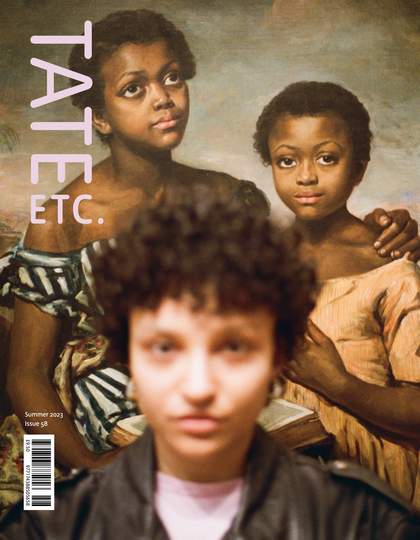
Marcus Gheeraerts II
Portrait of Captain Thomas Lee (1594)
Tate
Fifteen ninety four: Captain Thomas Lee is standing for a portrait by the artist Marcus Gheeraerts. Gheeraerts has set up his easel in the long grass, and Lee is wearing his finest regalia – a fantasy evocation combining the dress of an Irish soldier and that of a Roman hero. They have been trying to get the right pose for hours.
GHEERAERTS: Captain, that is perfect! Yes, hold that pose. Keep the wrist limp and the dress short.
LEE: You think it’s too much? I want it to say power!
GHEERAERTS: Too much? It’s the ’90s; there can never be too much! And nothing says regal power like a limp wrist; it’s a timeless choice.
Gheeraerts continues to paint, as Lee looks proudly at his limp wrist.
It was the American philosopher Judith Butler who said, ‘Gender is a performance.’ She, as well as the hundreds of drag queens I have met in the underground queer bars of London, reminds us of the acts of drama that go hand-in-hand with our experience of gender. It seems wherever gender goes, there follows a performance of what it might be trying to say.
Similarly, I believe art is also wrapped up in performance. I see a piece of art as a still of a performance in motion, a moment of drama, a snapshot, a glimpse into a spectacle – it captures a breath to be immortalised. Some works may never have asked for such a lens to be turned upon them, but equally many of us ask not to be gendered, and yet here we are, gendered, without a choice, every day.
Take a look at Marcus Gheeraerts’ portrait of Captain Thomas Lee in the first room of the new collection displays at Tate Britain. With this painting, Lee was attempting to impress Queen Elizabeth I with his military prowess and fidelity. For visitors today, the outfit might resemble something found in the women’s section of Zara. Gender is like a fog that cannot lift, or a filter that cannot be removed, even in our choice to ignore it – it will still be there.
Portrait of Captain Thomas Lee was purchased with assistance from the Friends of the Tate Gallery, the Art Fund and the Pilgrim Trust in 1980.
Travis Alabanza is a writer, performer and theatre maker based in London, via Bristol. This piece has been adapted from Gender, published by Tate Publishing.




